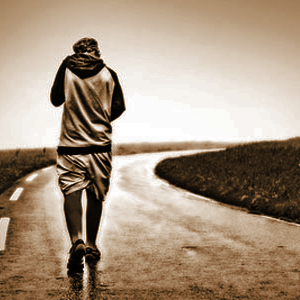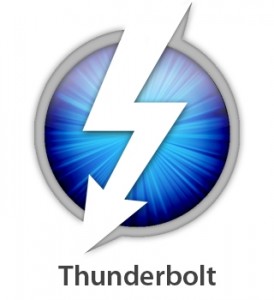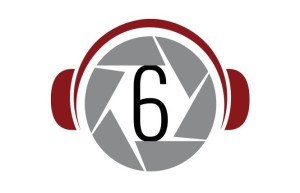World Cup 2010 – Groups Overview: Part One
9 min read It’s nearly time for the world to come together and participate in the FIFA’s World Cup. This year, the tournament is being hosted in South Africa, a country that’s history is not linked to soccer. As such, the decision to grant South Africa the prestige to host the World Cup has been in question by many. Questions of whether or not the security has been foremost on the mind of many, but the South African Soccer Federation has assured all that security would be adequate.
It’s nearly time for the world to come together and participate in the FIFA’s World Cup. This year, the tournament is being hosted in South Africa, a country that’s history is not linked to soccer. As such, the decision to grant South Africa the prestige to host the World Cup has been in question by many. Questions of whether or not the security has been foremost on the mind of many, but the South African Soccer Federation has assured all that security would be adequate.
There are 8 different groups (group A – group H) parsed out to 4 teams from all different countries that qualified and they are drawn at random. In the next few months, I will analyze each of the groups with a quick synopsis of the teams and the common thought of who would move on and who would be packing for home in the first round of the tournament.
Group A:
France (FRA)
Nickname: “Les Bleus” – The Blues for their blue soccer jerseys.
The French team was formed around the same time FIFA was formed, in 1904. Its first home game was played in front of only 500 supporters against Switzerland in February 1905. Les Bleus were one of only four European teams to participate in the first World Cup in 1930, hosted by Uruguay, where French forward, Lucien Laurent, made history as the first person to score a goal in the first World Cup. France hosted the 1938 World Cup and made it to the quarter finals but was eliminated by their chief rivals, Italy. After coming in third place in the 1958 World Cup, French soccer began facing a huge decline, qualifying only twice, getting knocked out in the first round in the 1966 and 1978 World Cups.
France has qualified for four consecutive years, so far, hosting once in 1998. When France hosted the World Cup they won the Cup, going undefeated with a record of 6-0-1 and beating soccer power house, Brazil, 3-0. The next Cup, they were knocked out after the first round. In 2006 was the head butt heard around the world when French superstar Zinedine Zidane head-butted Italian defender Marco Materazzi after Materazzi supposedly insulted Zidane’s sister.
Although many stars have retired, the team is filled with many more stars. Even still, the team came close to not qualifying for the 2010 World Cup. Finishing second in their qualifying group, they still needed a playoff against Ireland and a controversial handball in extra time, to slip into the World Cup. With veterans like William Gallas and Thierry Henry leading the helm and extreme talent like Frank Ribery and a rejuvenated Nicolas Analka, Les Bleus are projected to come out of the group stage on top.
Mexico (MEX)
Nickname: “El Tri – The Three, representing the Red White and Green colors on the flag.
The Mexican National Team was formed after the Mexican Revolution, established in Mexico City in 1922. In 1930, the founding of the World Cup tournament, Mexico qualified and participated, but was knocked out in the first round. From the 1950 World Cup through to the 1966 Cup, Mexico could not get out of the first round, winning their first World Cup match in 1966. However, when the World Cup was hosted in Mexico in 1970 as well as in 1986, Mexico had their best showing, making it through to the quarter finals. This World Cup, they qualified, second in their group behind the United States.
The majority of the Mexican squad plays in the Mexican leagues, however there are a few that play abroad, in the English Premier league, Dutch league and Turkish league. However, don’t let the lack of players playing in stronger leagues fool you. In Mexico, soccer is not just a past time, it’s a way of life and they are very serious about the sport. With the strength of Guillermo Ochoa, their goal keeper directing in the back and young talent like Giovani Dos Santos up front, they should have enough to skill to show the world that their rebuilding is moving well and to look past their disappointing recent past.
Uruguay (URU)
Nickname: “La Celeste” – The blue Sky, light blue uniforms.
Before 1916 Uruguay had played over 30 games, all of them against Argentina except for one. In 1924, Uruguay went to Paris and became the first South American team to participate in the Olympic Games. With their short passes, in contrast to the European style of long passes from the back line, Uruguay won every game and won the gold medal. It was the same story for the next Olympics in 1928.
Due to their success with the Olympics, Uruguay was chosen to host the first World Cup in 1930, where they continued their winning ways, winning all of their games. In 1934, Uruguay boycotted the World Cup due to some European teams boycotting the first World Cup. On a previous agreement that stated the World Cup hosts would alternate between Europe and South America, Uruguay boycotted the 1938 World Cup as the 1934 World Cup was held in Italy, the 1938 Cup held in France.
Although Uruguay, historically, was a strong team, inexplicably, the team has not been as successful as they once were. They finished fifth in qualifying group of ten teams, which meant they had to play a play-off game, which they won beating Costa Rica, unlike last World Cup qualifying, losing to Australia. Uruguay has a mixture of young players like central defender Diego Lugano and leading goal scorer veteran Diego Forlan. With this combination, it is conceivable that Uruguay moves on to the knock out round, eliminating Mexico.
South Africa (RSA)
Nickname: “Bafana Bafana” – The Boys, The Boys
1892 the Football Association of South Africa was formed, which was an all white team, while other nationalities, or colors, formed their own federations later. In 1960, the FASA was given an ultimatum by FIFA to abide by FIFA’s non-discriminatory regulations. After a year, FIFA banned South Africa for not complying. In 1963, the ban was temporarily lifted due to the fears that soccer would be discontinued in South Africa and possibly to the point the sport never being played in that country again. But, in 1976 with the Soweto uprising, South Africa was expelled from FIFA again. It wasn’t until 1991, when the apartheid system was being destroyed, a new multi-racial South African Football Association was formed and they were re-admitted into FIFA in 1992. Their only appearances in the World Cup were in 1998 and 2002, where they failed to move on past the group stages.
South Africa’s road to qualifying was not a positive one as they ended up third in their qualifying group, which would not allow them to move onto the World Cup. However, since they are the host nation, they automatically qualify. Although, as a whole, the South African team is not expected to move out of the first round, many of their players play in top tier leagues around the world. Two players to watch are midfielder Steven Pienaar, who plays for Everton, and recent call up, veteran Benni McCarthy, who is a sub for English league, Blackburn, and holds the record of goals for RSA at 35. South Africa plays the first game of the World Cup 2010 on June 11th against Central American powerhouse, Mexico.
Group B
Argentina (ARG)
Nickname: “Albiceletes” – White and Sky Blue, for their striped jerseys.
Argentina is one of the most successful international soccer teams in the world and it is also one of the oldest federations outside of Europe, being formed in 1893, joining FIFA in 1912. Argentina holds the record, with Uruguay, for the most international matches played against each other at 161 times, since 1901. The first match played between Argentina and Uruguay was also recorded as the first international soccer game played outside of the United Kingdom.
Although a perennial power house in soccer, the team has been involved with many controversial situations. The most famous is the “Hand of God” incident in the 1986 World Cup, between Argentina and England. Six minutes into the second half, a cross floated into the box and Diego Maradona, a 5’ 5” midfielder used his hand to direct the ball into the goal against England in the quarter finals. The referee did not see the infraction and the goal stood. This has created a great rivalry between the two countries, as the Falkland War was going on during the time.
With superstars such as Lionel Messi, Carlos Tevez, Diego Milito and Gonzalo Higuain up front and a resurging veteran Juan Sebastian Veron in the middle, an extremely strong team struggled in the qualifying stage for the World Cup and finished fourth. With controversial Diego Maradona as the coach, one who has lifted the Cup in 1986 and is considered the greatest player in all time, the Argentineans should move on with a weaker schedule ahead of them.
Nigeria (NGA)
Nickname: “Super Eagles”
The Nigerians had played in unofficial games against other colonies since 1930’s but the federation did not become official since 1949, while still a British colony. The team played warmup games against the English national team and also participated in the African Cup and the All African Games, where at the second All African Games, they won the gold medal.
Their first World Cup appearance was in 1994 where they won their group and moved onto the Round of 16, coming in 9th place, playing four games with a record of 2 wins and 2 losses with no draws, a very successful placing with a team so young. Qualfiying for the 1998 World Cup, there was high hopes for the Super Eagles, with hopes to surpass their 1994 success. Unfortunately they did not surpass the success, falling slightly, yet making it to the Round of 16. Losing 4-1 to Denmark, they were sent home.
Fielding a team of many veterans, this team should manage to move out of the first round. With the veteran captain Joseph Yobo, who plays for Everton in England, as the center back and prolific goal scorers such as Yobo’s team mate Yakubu Aiyegbeni and fellow EPL player, Nwankwo Kanu, who plays for Portsmouth. Another rising star for Nigeria, Obafemi Martins, playing for Wolfsberg in the German Premier league, has 28 international appearances (caps) with 16 goals, should also make his presence known.
South Korea (KOR)
Nickname: Red Devils
The South Korean team is recognized as Republic of Korea or Korea Republic by FIFA, has a somewhat short history, but is also seen as Asia’s most successful team, being a two time straight Asian Cup champion and having seven World Cup appearances, since 1954. Their greatest success was in 2002 when they reached the Semi Finals, losing to Germany 1-0.
Although a relatively successful team they had a rough time qualifying again to reach the World Cup, even though they finished first in their group. The North Korean team proved to be South Korea’s biggest obstacle, with a 1-1 draw in the first round. However, the Red Devils were able to beat them 1-0 in the second round moving on to the World Cup.
Much is expected from the Red Devils, with their success at the 2002 World Cup. If they are able to outperform Nigeria, they potentially could move on to the next round. However, their squad does not seem as strong and the Nigerians. Their Captain, Park Ji-Sung, midfielder for Manchester United and forward Park Chu-Young who plays for Monaco in the French premier league, are their strongest players and most capped.
Greece (GRE)
Nickname: N/A
The Greece team has been around since 1929, playing its first international match against Italy, losing 4-1. However, its history didn’t really start until 1980 where they qualified for the UEFA European Champions Cup for the first time after trying since 1960. They were knocked out in the first round and did not qualify again until 2004. They also have not found much success in qualifying for the World Cup either, having only qualified twice, in 1994 and the 2010 World Cup.
In 2004, against all odds, they won the UEFA Champions Cup. During that tournament, they managed to beat the hosts, Portugal, twice, once in the first round and in the finals to win the cup. During the qualifying for the World Cup 2010, Greece has moved on in impressive fashion, coming in second to Switzerland with a record of 6-2-2.
The Greece squad is mixed with young players and older players, most players coming from the local Greece Premier league; though some of their top players ply their craft in other leagues, namely forward Angelos Charisteas who plays for Nuremberg, in Germany, and fellow Bundasliga player, Theofanis Gekas who plays for Hertha Berlin. Along with veteran defender Sotirios Kyrgiakos and Captain Giorgos Karagounis leading the squad, it is more than likely that this team will not fare well and be sent home after the first round.
Stay tuned for an overview of Groups C & D coming soon!







No mention of Henry cheating the Irish out of the Cup?
It’s in there, just tried to keep it objective and though I agree with your sentiments and as much as I dislike the fact that the French are in there other than Ireland, I didn’t want to smudge the present, so to speak. If that makes any sense at all..